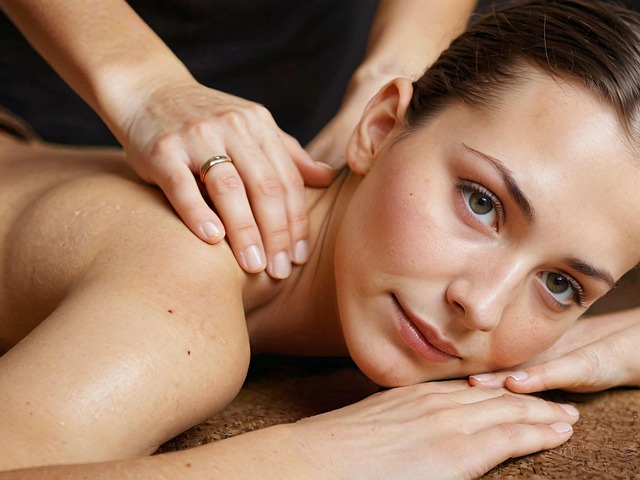Cold plunging, brief exposures to cold water below 59°F, is a natural and accessible method to support hormone balance. It reduces stress hormones, stimulates endorphin release, and enhances overall well-being. Incorporating cold plunges into daily routines, starting gradually, benefits beginners aiming for improved endocrine health. However, individuals with certain conditions should exercise caution, listening to their bodies throughout.
“Uncover the power of cold plunges as a natural tool for hormone regulation. This comprehensive guide is designed to empower beginners navigating the world of cold water therapy. By understanding the science behind cold exposure and its profound effects on the endocrine system, you’ll learn practical tips to incorporate cold plunges into your routine effectively. From reducing stress hormones to boosting overall hormonal balance, discover the benefits and precautions associated with this ancient practice, now recognized as a modern game-changer for endocrine health.”
Understanding Hormone Regulation and Its Impact on Cold Plunges
Understanding Hormone Regulation and Its Impact on Cold Plunges
Hormone regulation is a complex process that plays a pivotal role in our overall health, influencing everything from energy levels to sleep patterns and mood. The endocrine system, comprised of glands that secrete hormones into the bloodstream, acts as a sophisticated communication network, ensuring our bodies function optimally. However, modern lifestyles often introduce imbalances, leading to conditions like stress, inflammation, and hormonal disorders. In response, cold therapy, particularly cold water immersion or cold plunges, has emerged as a powerful tool for promoting hormone regulation.
Cold plunges, which involve brief exposures to cold water, typically below 59°F (15°C), have been shown to reduce stress hormones like cortisol and adrenaline. This reduction in stress hormones can create an environment conducive to better hormone balance. Additionally, cold water therapy stimulates the release of endorphins, our natural mood lifters, which further enhances well-being. By integrating cold plunges into their routines, beginners can harness the benefits of cold water immersion for endocrine health, potentially boosting hormonal balance and overall stress resilience.
The Science Behind Cold Water Therapy and Its Effects on the Endocrine System
Cold water therapy, often in the form of cold plunges or immersions, has gained popularity as a natural way to support hormone regulation and overall endocrine health. The science behind this practice suggests that subjecting the body to sudden cold exposure triggers a cascade of physiological responses. When you immerse yourself in cold water, your body temperature drops rapidly, leading to a release of stress hormones like cortisol. This initial ‘fight or flight’ response is followed by an increase in norepinephrine, which helps regulate metabolism and improves focus.
Over time, regular cold exposure may help reduce levels of cortisol, often referred to as the stress hormone, and promote the production of other key hormones. Studies show that cold water therapy can positively impact the hypothalamic-pituitary-adrenal (HPA) axis, which is responsible for managing the body’s stress response. By regulating this system, cold plunges could contribute to a balanced hormonal state, especially in beginners looking to establish a healthy routine. Additionally, the temporary reduction in blood flow during cold exposure may support the removal of metabolic waste products, further enhancing overall endocrine function.
Practical Tips for Incorporating Cold Plunges into Your Routine
Incorporating cold plunges into your daily or weekly routine is an accessible way to start benefiting from this ancient practice for modern hormonal health. Start small, gradually integrating cold exposure through activities like cold showers, quick dips in a cold lake or pool, or even finishing off your workout with a blast of cold water. Consistency is key; aim for 2-3 times per week for noticeable benefits. Remember that everyone’s comfort level differs, so listen to your body and never force yourself into extreme temperatures.
For optimal results focused on hormonal balance, consider incorporating specific practices like the “cold shower challenge” where you start with warm water and gradually lower the temperature, or try contrast showers alternating between hot and cold water. Additionally, immersing yourself in a cold environment for extended periods, such as ice baths, can significantly reduce stress hormones like cortisol. This not only promotes recovery but also supports long-term endocrine health and overall well-being.
Potential Benefits and Precautions: What to Expect from Cold Exposure for Hormonal Balance
Cold plunge for hormonal balance has gained popularity as a natural way to support endocrine health. The practice involves brief exposure to cold water, often in the form of an ice bath or cold water immersion. Benefits of cold plunges for endocrine health include reduced stress hormone levels, improved thyroid function, and enhanced insulin sensitivity. Cold water therapy for hormones stimulates the release of norepinephrine, a hormone that helps regulate metabolism and fat burning. It also promotes the production of endorphins, which can alleviate stress and improve mood.
However, it’s essential to approach cold exposure for hormone regulation with caution. Not everyone is suitable for cold plunge therapy; individuals with certain medical conditions like Raynaud’s disease or heart problems should avoid it. Pregnant women and those experiencing extreme fatigue or illness should also exercise caution. Sudden cold exposure can cause shock or discomfort, so it’s crucial to ease into the practice gradually. Start with short periods of cold water immersion, such as 10-15 seconds, and slowly increase duration as tolerance improves. Remember that listening to your body is key; always stop if you feel any adverse effects.
Incorporating cold plunges into your routine can be a powerful tool for achieving optimal hormone regulation. By understanding the science behind cold water therapy and following practical tips outlined in this article, beginners can safely harness the benefits of cold exposure for endocrine health. From reducing stress hormones to promoting overall well-being, cold plunge for hormonal balance offers a simple yet effective approach to enhance your health journey.
